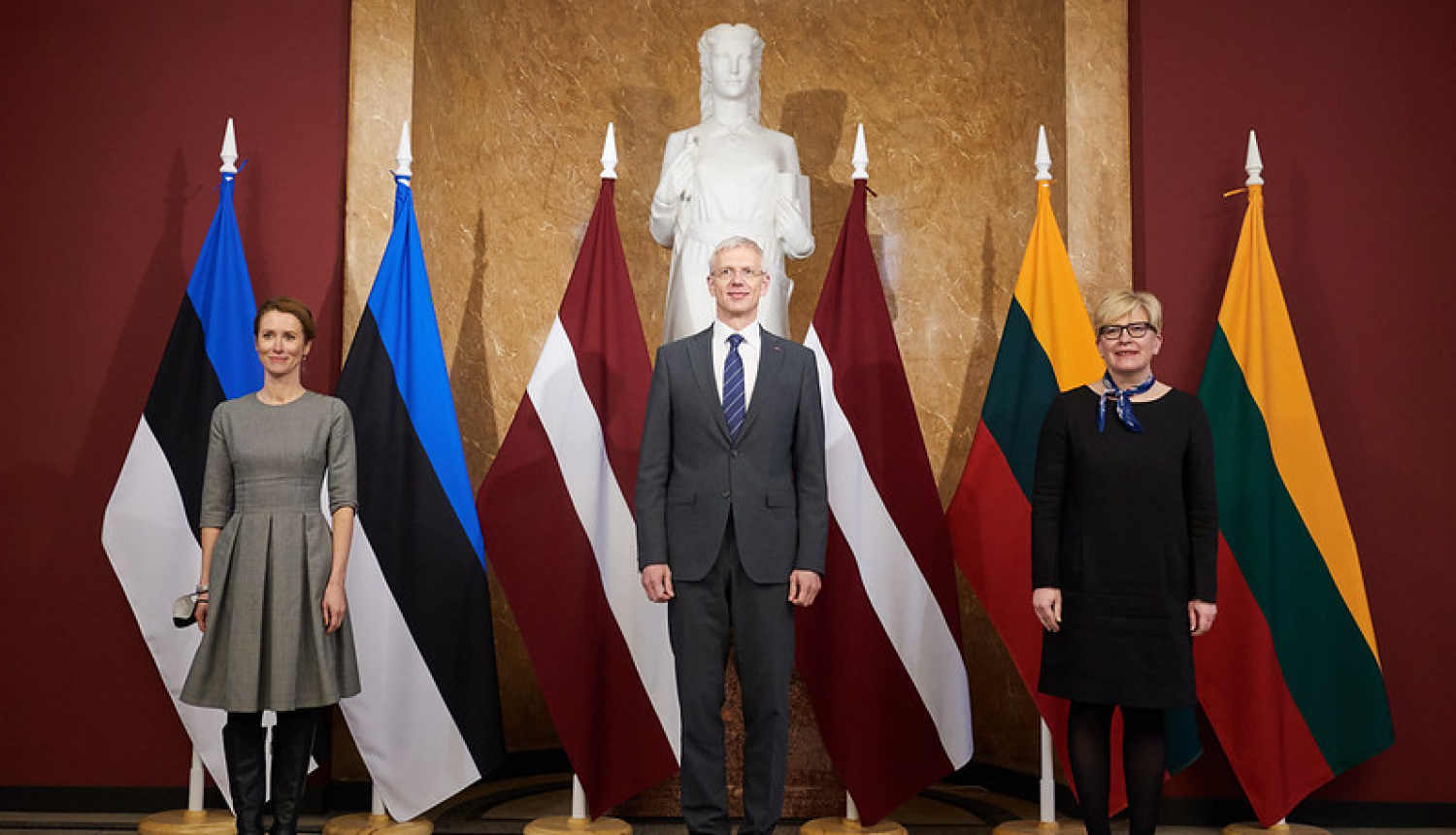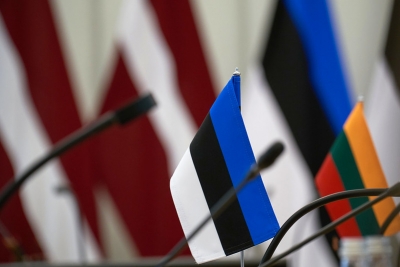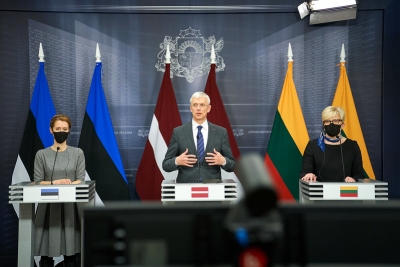On Friday 4 February, Prime Minister Krišjānis Kariņš met with Kaja Kallas, Prime Minister of Estonia and Ingrida Šimonytė, Prime Minister of Lithuania to discuss the security situation in the region. The Heads of Government of Latvia, Estonia and Lithuania agreed on the need to further strengthen the military presence of allies in NATO’s Eastern flank, including in the Baltic States.
“It is important to remember that, within the framework of NATO’s Enhanced Forward Presence, 26 out of 30 armed forces of NATO member states are deployed in the Baltic States and Poland, and jointly strengthen the security in our region. We are united in the position that the presence of allies throughout NATO’s Eastern flank, including the Baltic States, should be strengthened,” said K. Kariņš.
During the meeting, the situation regarding the concentration of Russian military forces at the Ukrainian borders was also discussed. The Heads of Government of the Baltic States stressed the need to continue supporting Ukraine, including through military assistance. In addition, K. Kariņš noted that a meeting with German Chancellor Olaf Scholz is scheduled for the leaders of the Baltic States next week to discuss the security situation in the region.
At their meeting on 4 February, the Heads of Government of the Baltic States also addressed the implementation of the European Green Deal and agreed on the signing of a joint position paper on Fit for 55 package. "We signed today the position of the Baltic States on the Green Deal, where we say that it should be accompanied with a requirement that we do not impose a disproportionate burden on our citizens. We need to move towards achieving climate goals realistically and in a way acceptable to society," stressed the Prime Minister.
The Heads of Government of the Baltic States also discussed the current situation regarding the containment of the COVID-19 virus. According to K. Kariņš, the Baltic Prime Ministers decided to require the ministries of health to work closely together to develop a similar approach to implementing COVID-19 epidemiological safety measures by March.





